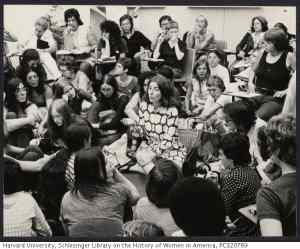
Tips for training or other events which connect people to a campaign and help individuals overcome their barriers to action. As organisers we can use the momentum of the group to leverage people to action – like a turbo-charged persuasive conversation.

Rick Chen, cofounder of Pozible, came along to a Melbourne Campaigner’s Network session to introduce the basics of crowd-funding and how to use the Pozible platform. Read on for some tips on how to get your crowd-funder up and running!

The Your Rights at Work campaign ran from 2005 to 2007 and included some of the largest mobilisations in Australian social movement history. This article draws out some of the lessons in relation to ensuring strong turn-out at rallies and other events.

We’ve gathered together tips on building a donor base, running successful crowdfunding campaigns, and where to access more resources on effective fundraising for social justice causes.

What does it take to build a civil society coalition with the power to shift a city? This interview with Amanda Tattersall, Founder and Coalition Director of the Sydney Alliance, gives some good clues.

Nonviolent direct action can play a powerful role in campaigns. This article summarises some of the characteristics that can make NVDA either effective or ineffective, and encourages the use of clear tactics criteria in developing campaign strategy.

Lessons about the effective use of art in campaigns from three activist artists: Tom Civil, Arlene TextaQueen and Van Thanh Rudd.

Insights about facilitation from the very challenging General Assembly process at Occupy Melbourne. This article will be of interest to facilitators and others learning about group process, as well as people keen to find out about the Occupy movement. These reflections were written two weeks after Occupy Melbourne kicked off in October 2011.

What it takes for people to get active, what leads to people dropping out of activism, & what we should think about when engaging new activists.

Insights from the history of unemployed activism. Includes an overview of the history of Australia’s welfare system and stories from the 1920s, 1980s, 1990s and early 2000s – plus creative, humorous and confrontational tactics.

The annual R U OK Day aims to prevent suicide by building connection. This articles looks at what individuals and groups engaged in social change can do to connect with and look out for others.

Setting a life up to sustain activism doesn’t always come easy. Just like in a campaign we’re much more likely to get where we want to go if we’re clear about the intended destination – and if we take effective steps in that direction. These tips are provided to help you reach your healthy goals.

To be fresh and ready for the challenges of social change we also need quality time off. Here are some tips for getting the most out of a break, whether a longer holiday, weekends or any captured moment for potential relaxation.

Experiencing defeats contributes to many people losing hope, burning out, or just dropping out of activism. If we can set up our organisations and social movements to function effectively we’re more likely to foster hope and keep engaged and emotionally strong activists.

Consciousness raising was a key element of the second wave women’s movement enabling women to recognise that the personal is political. This article gives an overview of group consciousness raising processes relevant for any group based on a shared identity or experience of oppression.

Why not take some time out to reflect on the year that was, before jumping in to plans for the next? Different approaches to reflection are explored including journalling, art and ritual. Plus there’s a handy worksheet which you can use (at any time of the year).

Community organisers (and other change agents) have some excellent tools that can maximise the likelihood of making healthy goals a reality. This article will tune up your organising smarts as well as your health and wellbeing.

A book review of The Transition Handbook by Rob Hopkins with emphasis on its insights around the emotional & psychological impact of climate change.

This article explores some of the ‘cognitive errors’ or ‘traps’ that contribute to activist burnout. Read through this list and see if you might need to adjust your perspective, in the interests of your health, wellbeing and effectiveness.

Facilitators help a group to get where it needs to go, whether the focus of a gathering is information sharing, discussion, generating creative options, making decisions, team building or planning for action. Here are some tips and tricks for facilitation, to help you get the most out of your next meeting.




















